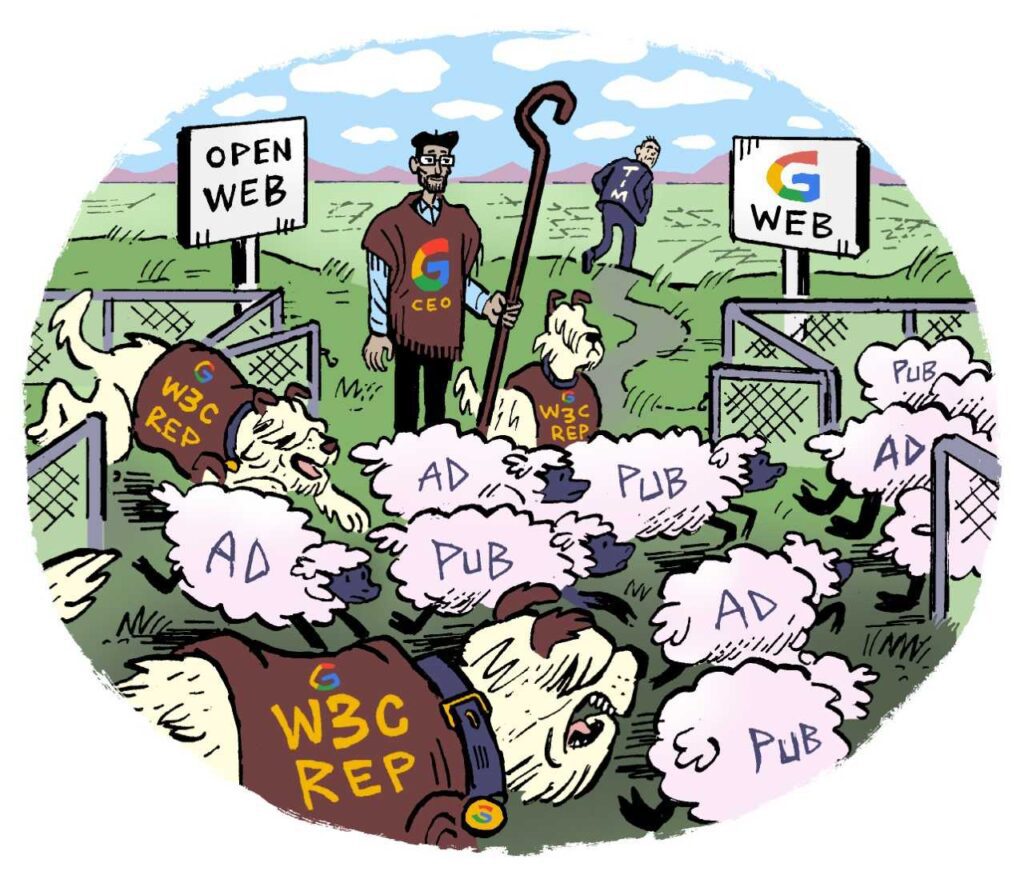There’s No Place Like Chrome
Two of the proposed remedies in the DOJ’s search antitrust suit against Google are requirements to divest Chrome and stop paying other browsers to be their default search engine.
Those proposals sound like killer opportunities for other browsers. Except they might just be killers, The Information reports.
Firefox, Edge, Brave, Opera and newer browser startups contend that Google oversees an illegal search monopoly. But they aren’t keen on the Justice Department’s proposals.
For one thing, Chrome is built on Chromium, the open-source software underlying those other browsers. And while Chromium is open source, Google engineers make 95% of the software updates. And the browser requires constant updates to remain top of class.
In other words, everyone still needs Google to do the hard work to maintain Chromium. Which Google probably won’t do if it’s forced to offload Chrome.
Also, other browsers have particular asks.
Google’s Firefox search licensing payments make up 80% of Mozilla’s revenue. If those go away, so does Firefox.
Meanwhile, Brave doesn’t have a default search or ad deal with Google. But it wants to get paid when its browser users go to Google.com and use the search engine.
The Services Biz
Agencies are quitting the agency business. Except, of course, they’re not.
Mostly, agencies are assembling familiar services around new business models.
For one thing, their advertiser clientele increasingly prefers to pay for software, rather than pay for people to do work. So agencies put together tech, SaaS and cloud usage offerings.
Agencies are also perennially worried about being cut out of the ad industry equation. But it never happens.
DSPs were going to leapfrog agencies – some died trying. Direct-to-consumer brands were going to ditch agencies. Until they didn’t. Retailers and brands in-housed their agency work (except, shhh … they never fully did).
As Digiday notes, Omnicom CEO John Wren, speaking with investors Monday morning following the announcement of its merger with IPG, described the new business as “being a part of what is now a platform, essentially a company with exceptional talent and reach and capabilities.”
But it isn’t a platform, just a bigger agency. Similarly, IPG and Publicis’ acquisitions of Acxiom and Epsilon, as well as Omnicom’s flagship acquisition of Flywheel Digital last year, were framed as first-party data acquisitions. They own those businesses now, true enough. But they’re third-party data operators.
AI Don’t Know
Consumers are beginning to use large language models, like Perplexity and ChatGPT, to answer questions they would have previously researched via search engine, Bloomberg reports.
Theoretically, the appeal is that asking a chatbot only takes the user one query to get what they’re looking for (or something resembling it – more on that in a second), whereas googling typically requires several more minutes of scrolling, clicking links and assessing the information therein.
But as we all remember from Google’s own attempts at AI search, these tools are still prone to delivering falsities. A typical LLM works by analyzing the frequency at which words appear next to each other in its training data. It’s not answering questions as much as it’s estimating what the correct answer would sound like.
Of course, people can be misled by the internet in all sorts of ways. For every anecdote about a student challenging their teacher based on what ChatGPT told them, there’s another of an entire production team making an obvious mistake based on a bad image search.
Either way, maybe the real answer is teaching critical thinking skills to people at an earlier age – and being honest about technology’s limits when you do.
But Wait! There’s More!
A US District Court judge rules in the FTC’s favor in its suit to block the proposed merger of Kroger and Albertsons. [Court Listener]
LoopMe acquires Chartboost from Zynga. [release]
What advertisers need to know about brain rot. [Ad Age]
Congress is pushing Apple to remove apps used to create deepfakes from the App Store. [404 Media]
Amazon officially sells cars now. [TechCrunch]
Google invests in venture to build energy parks for data centers. [Bloomberg]
You’re Hired!
NBCUniversal poaches Roku’s Kristina Shepard as EVP of streaming and performance sales and partnerships. [Variety]
Digital audio ad platform AMA hires Paul Kelly as CEO. [release]
Publishers Clearing House Media appoints Dave Matthews as chief revenue officer. [release]
Amplified Intelligence appoints Anneliese Urquhart as CEO. [release]













